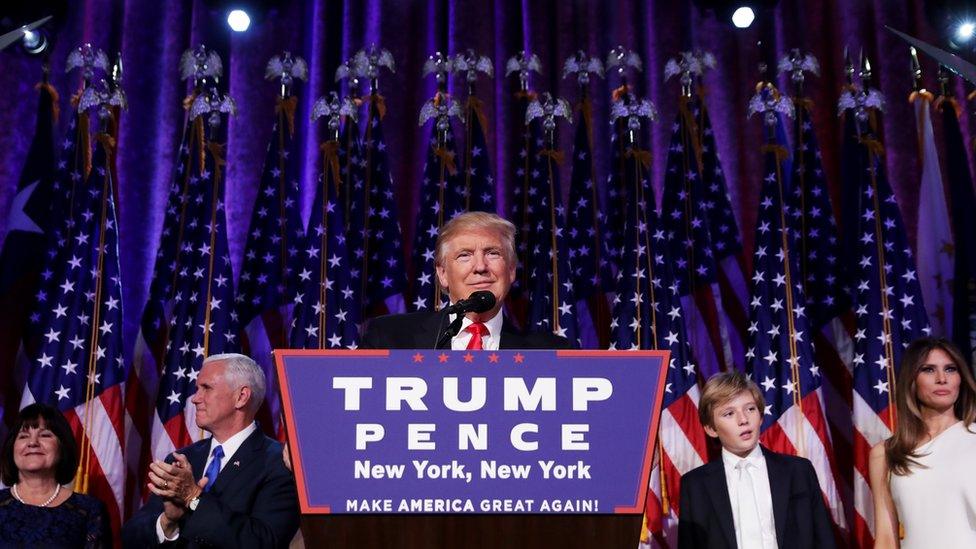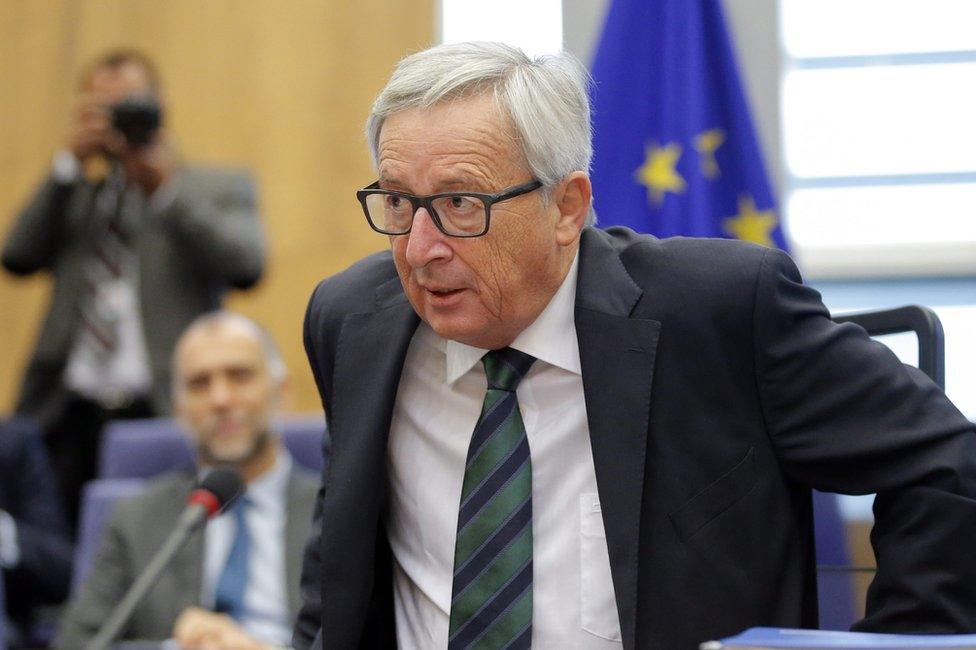Trump election: Juncker warns president may upset US ties with Europe
- Published

Donald Trump is due to take over at the White House in January
Donald Trump's election risks upsetting EU ties with the US "fundamentally and structurally", EU Commission President Jean-Claude Juncker has warned.
"We will need to teach the president-elect what Europe is and how it works," Mr Juncker told students in Luxembourg.
The Commission chief predicted that two years would be wasted while Mr Trump "tours a world he doesn't know".
His remarks contrasted with other EU leaders' more muted reaction to the Tuesday's shock election result.
American cities have seen angry protests since Mr Trump's election victory over the Democratic candidate, Hillary Clinton.
In New York, Mr Trump set about forming the team that will see him through to his inauguration on 20 January, when he replaces Barack Obama in the White House.
EU unease
Mr Juncker had offered his formal congratulations to Mr Trump on Wednesday in a joint statement, external with Donald Tusk, head of the European Council.
Speaking on Friday, he said: "In general the Americans take no interest in Europe...
"During the campaign, Mr Trump said Belgium was a village somewhere on our continent...
"He raises questions which could have harmful consequences because he calls into question the trans-Atlantic alliance, and thus the model on which Europe's defence rests.
"He takes a view of refugees and non-white Americans which does not reflect European convictions and feelings."

Jean-Claude Juncker in Brussels earlier this week
During the election campaign, Mr Trump caused alarm in EU circles with his sharp criticism of Nato, the cornerstone of Western Europe's defence structure, and calls for better relations with Russia.
Policy change would have huge implications for Kiev as Tom Burridge reports
His promise to "cancel" the Paris Climate Agreement within 100 days of taking office and protectionist stance on trade have also caused concern, as have his controversial comments about ethnic and religious minorities.
While EU leaders congratulated the Republican on his shock victory over Hillary Clinton, German Chancellor Angela Merkel stressed in her message to him that the US and Germany shared "the values of democracy, freedom, respect for the rule of law and human dignity, regardless of origin, skin colour, religion, gender, sexual orientation or political belief".
Germany, France and the Netherlands all face elections in the new year, with populist and far-right parties poised to capitalise on discontent with the EU's continuing migrant problem and its slow recovery from the eurozone debt crisis.
Before Mr Trump's victory, the EU had already been rocked by the UK's vote to leave the body at a referendum in June.
However, on Thursday, UK Foreign Secretary Boris Johnson urged his EU colleagues to take a more positive attitude.
"I would respectfully say to my beloved European friends and colleagues that it's time that we snapped out of the general doom and gloom about the result of this election," he said on a visit to Serbia.
Meanwhile, in New York, outgoing UN Secretary General Ban Ki-moon said he was confident Mr Trump would not rip up the Paris agreement on climate change, despite his campaign pledge.
"He has made a lot of worrying statements but I am sure that he will understand the whole importance and seriousness and urgency," he told AFP news agency.